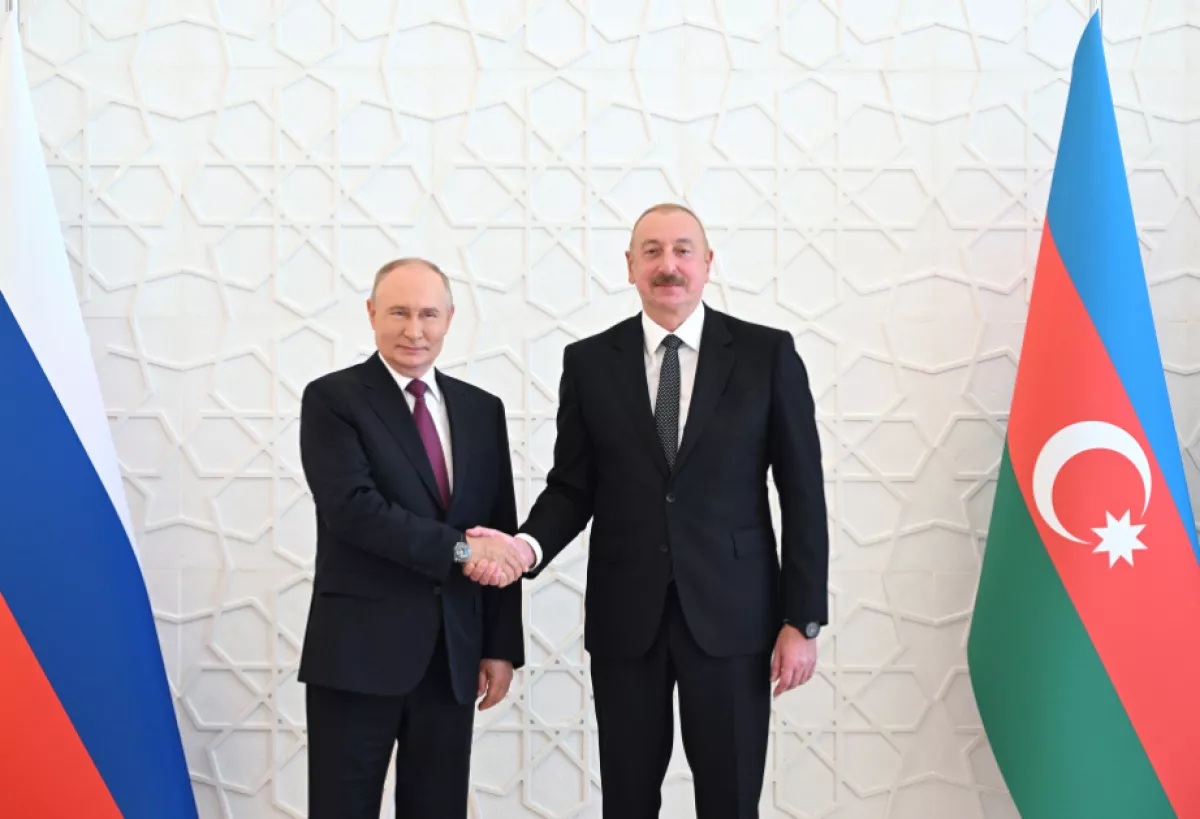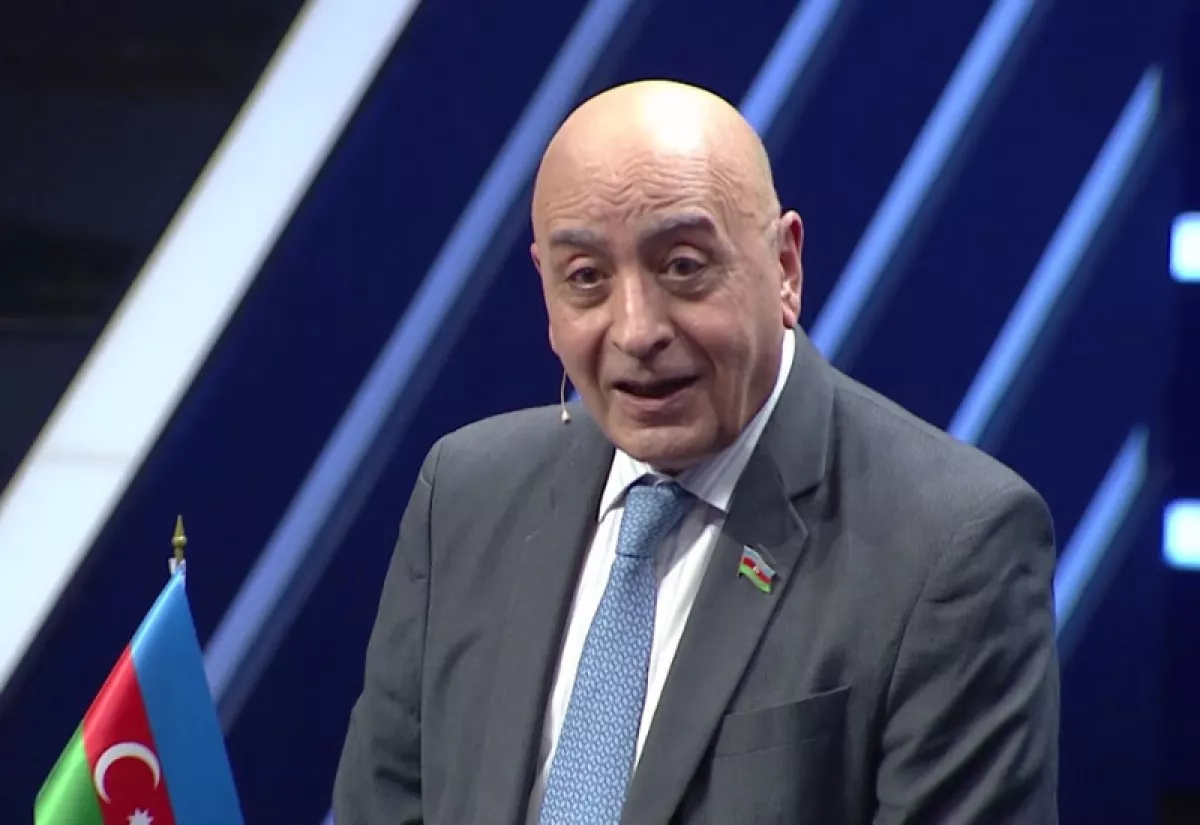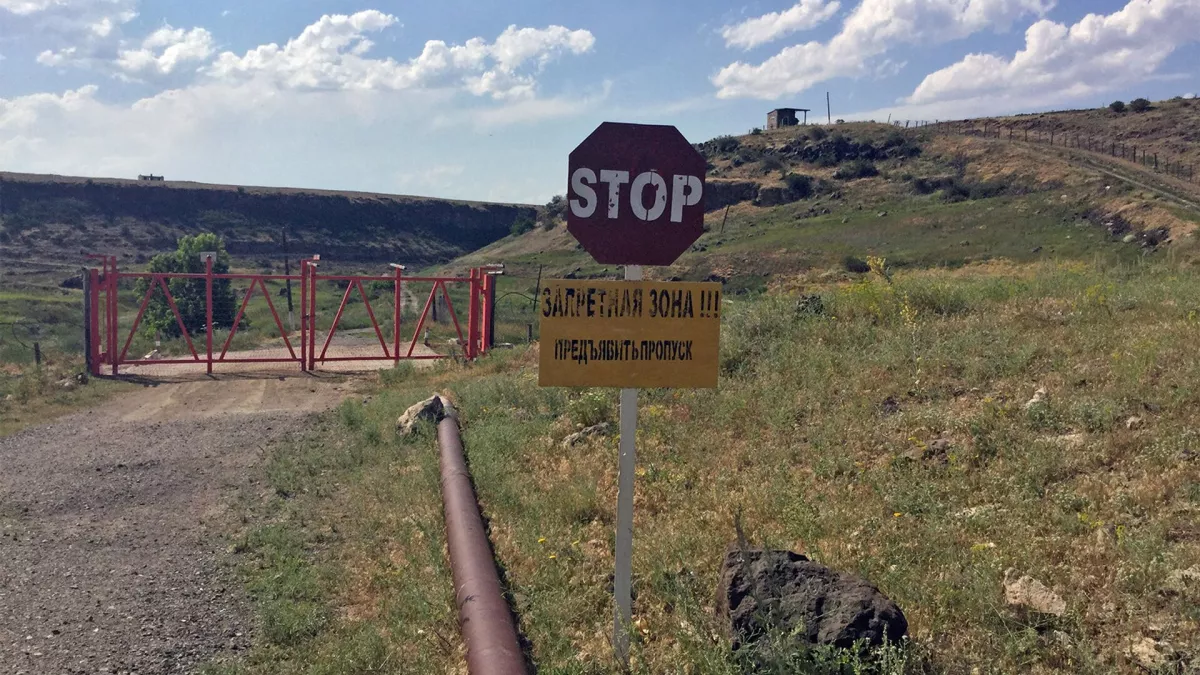Armenia leverages Zangazur corridor negotiations for concessions Yerevan’s strategic stalling
Azerbaijani President Ilham Aliyev and his Russian counterpart Vladimir Putin exchanged views on the opening of a transport corridor between the western regions of Azerbaijan and the Nakhchivan Autonomous Republic as they had a telephone conversation on 28 August. During the phone talk, Vladimir Putin conveyed Russia’s readiness to support the advancement of the peace agenda between Azerbaijan and Armenia. The presidents also expressed confidence that the initiatives designed to implement the agreements made during Putin's visit to Baku would further bolster the relations between Azerbaijan and Russia.
We should pay particular attention to the final point in the statements from both parties. Baku and Moscow are clearly committed to adhering to a specific roadmap developed by presidents Aliyev and Putin during their discussions in Baku, and the recent phone conversation appears to be a logical extension of the process to implement these agreements.
This commitment likely includes one of the major priorities for Baku and Moscow at present—the implementation of the Zangazur corridor project. Moscow seems to be resolutely focused on advancing the corridor initiative, as evidenced by recent comments from Foreign Ministry spokesperson Maria Zakharova, who highlighted efforts to establish transport communication along the future corridor.

Given this context, the question arises: how realistic is the prospect of launching the Zangazur corridor in the near future, or do its prospects remain uncertain?
Political scientist and MP Rasim Musabayov suggests that the railway through Meghri, which was operational during the Soviet era, will likely be reinstated, as Armenians recognize the limited alternatives available to them. In an interview with Caliber.Az, Musabayov pointed out that Yerevan is acutely aware of the pressure from Russia on this matter.
“Moscow remains insistent on advancing the Zangazur corridor project because it requires access to Iran and Türkiye, and is not eager to wait indefinitely for the North-South corridor to become operational. Russia has explicitly expressed its interest in establishing a railway link to Nakhchivan via Meghri.
In contrast, the US had proposed restoring the Ijevan-Gazakh road, but Azerbaijan firmly rejected this plan, insisting that no other transport routes to Armenia will be opened until the Meghri railway is reinstated. The US has acknowledged Azerbaijan’s firm stance and is currently advising Armenian Prime Minister Nikol Pashinyan to show flexibility.
The alternative route through Iran, along the Araz River to Julfa, is unacceptable to the US, which has made its position clear. Despite its close cooperation with Iran, Russia prefers the transport corridor to pass through Meghri, where its border guards are stationed.

In my view, Armenia is delaying progress because it sees Meghri as a crucial leverage point in negotiations with Azerbaijan and aims to secure significant concessions in return. The dialogue will likely persist, and Azerbaijan’s decision to separate the peace treaty from future agreements on the Zangazur corridor is strategically sound. I anticipate that by early next year, Azerbaijan will complete the restoration of the railway to Aghband, which borders Armenia. By then, Armenia will need to make a decisive choice. However, I must emphasize that Yerevan has limited options; if it does not engage, all transportation routes—both through Azerbaijan and Türkiye—could be permanently closed off to Armenia,” the political analyst emphasized.
Meanwhile, according to Musabayov, transportation to Nakhchivan will continue via Iran.
“Currently, the detour through Tabriz spans nearly 250 kilometers, which is highly inconvenient for traffic flow and passenger buses traveling from Azerbaijan. However, with the imminent completion of a bridge at Aghband and a corresponding bridge to Nakhchivan near Ordubad, the route through Iran to Nakhchivan will be reduced to just 55-60 kilometers. By mid-next year, once these bridges are operational, the quality of this transport corridor will be significantly enhanced,” Musabayov stated.
Russian political scientist and publicist Ruslan Safarov underscored the crucial importance of the Zangazur corridor's launch for Moscow.
“The development of the North-South transport corridor is crucial for Russia, but there are significant delays on the Iranian side, particularly with the Rasht-Astara segment. Moscow is acutely aware of these bureaucratic hurdles. Despite substantial Russian investments and oversight of the construction, it is evident that completing this section of the corridor is a matter of time and will not be resolved immediately. Nevertheless, Russia requires the transport corridor urgently; it is, in fact, a matter of strategic necessity for Moscow.
Access to Middle Eastern markets could greatly boost Russia's economic dynamics, enhance international trade, and provide other benefits. Consequently, Russia is vigorously pursuing the launch of the Zangazur corridor. This effort also involves a diplomatic element, as Russia is relying on the stipulations of the trilateral agreement of November 10, 2020, which outlines Armenia's obligations regarding Zangazur and which, for now, no one intends to abolish.”

Additionally, a crucial and advantageous factor for Moscow is the presence of Russian border guards in the area, who are authorized to oversee cargo control. Should the corridor become operational, it would enable integration with the North-South corridor, allowing railway transit through Armenia and Nakhchivan to reach Julfa, where they could connect with the Iranian railway system. This would facilitate further movement across Iran, accessing markets in the Persian Gulf and the Arabian Sea—offering expansive and clear prospects.
Therefore, customs control within the Zangazur corridor holds strategic significance for Moscow, according to the political scientist.
However, Safarov notes a complicating factor: a clash of interests between Moscow and Yerevan.
“The reality is that Prime Minister Pashinyan has adeptly convinced his population that Russia is responsible for Armenia's defeat in the 44-day war. At the same time, Armenia recognizes Russia's vested interest in the Zangazur corridor, leading to ongoing negotiations and hesitations. Consequently, predictions regarding the corridor's launch through Armenia now resemble attempts at divination.
Pashinyan’s policy of balancing between competing interests creates conditions that could delay progress. In effect, Yerevan appears to be attempting to negotiate a higher price for the Zangazur corridor from Moscow while simultaneously blaming Russia for various grievances—a strategy that is impeding the resolution of the issue. Should Pashinyan allow the corridor to be operational through Armenian territory under Russian border guard supervision, he risks jeopardizing his own position,” the political scientist underlined.

However, the political analyst also pointed out that, in the long run, the successful implementation of the Zangazur corridor is advantageous for all regional stakeholders. Additionally, strengthening ties between Baku and Tehran could foster a positive momentum for advancing the corridor project.
“Following the 44-day war, Iran has effectively lost much of its influence in the region. With Armenia shifting its alignment towards the West, Iran now faces increased security concerns along its borders. The Zangazur corridor presents Iran with an opportunity to enhance its position by facilitating the transit of its goods to new markets. However, Türkiye is determined to prevent Iran from gaining control over transit railway traffic, leading to significant conflicts of interest.
As a result, it seems unlikely that the Zangazur corridor issue will be resolved immediately; a resolution will likely require more time. There is a strong possibility that the matter will be addressed once Prime Minister Pashinyan can present a new achievement to his people—such as the signing of a peace treaty with Azerbaijan. This would be a major accomplishment for Armenia, which has endured years of conflict. It is anticipated that Pashinyan will successfully accomplish this goal. Once a peace agreement is in place, resolving logistical issues with Yerevan should become considerably easier," Safarov concluded.








